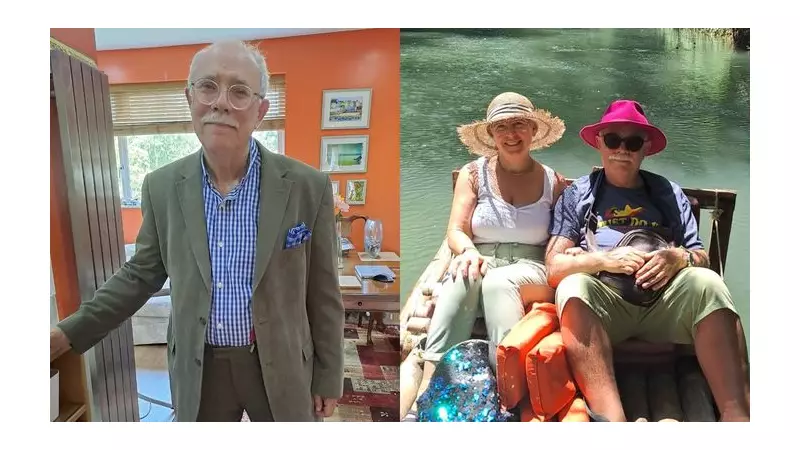
From Wheelchair to Walking: A Medical Cannabis Transformation
Steve Willis, a 72-year-old man from Northamptonshire, has experienced what he describes as getting his life back after being prescribed medical cannabis for Parkinson's disease. His remarkable journey from relying on an electric wheelchair to playing walking football demonstrates the potential of this alternative treatment.
The Parkinson's Diagnosis and Conventional Treatment
Steve first noticed symptoms in June 2020, experiencing hand tremors, difficulty swallowing, and developing micrographia - where his handwriting became significantly smaller. These symptoms led to a formal Parkinson's diagnosis later that same year. Doctors prescribed Levodopa, a standard Parkinson's medication that converts into dopamine to aid movement control.
Despite this conventional treatment, Steve's condition continued to deteriorate. His wife Merryl, 65, adapted their home to accommodate his declining mobility, removing doors and installing smart home technology. Steve described living with Parkinson's as feeling surrounded by a firewall that made expressing his thoughts increasingly difficult.
The Caribbean Breakthrough That Changed Everything
During a holiday in the Caribbean in March 2025 to celebrate Merryl's 65th birthday, the couple experienced an unexpected turning point. While in Jamaica, where cannabis is decriminalised for personal use, another hotel guest offered Steve some cannabis through a vape pen.
What happened next astonished them both. Eight minutes later... I walked, Steve recalled. Merryl described watching in disbelief as her husband stood on one leg, then the other. I burst into tears, she said. The following day, Steve was jogging along the beach for the first time in years.
Navigating the UK Medical Cannabis System
Although cannabis-based products have been legal on prescription in the UK since 2018, NHS access remains extremely limited. Most prescriptions are reserved for severe epilepsy, chemotherapy-related nausea, or multiple sclerosis, leaving Parkinson's patients to seek private routes.
The couple turned to Curaleaf Clinic, a licensed private provider. It wasn't difficult, Merryl explained. You register online, tell them your problem, give them access to your NHS history so they can see what you've already tried. Then you meet with a consultant neurologist who assesses your suitability.
When Steve took his first regulated medical cannabis dose, the results were immediate and dramatic. He walked around the room waving his arms in happiness, Merryl recalled. He was just overjoyed.
Life After Treatment: Regained Independence
Since starting treatment, Steve has abandoned his electric wheelchair at home and now enjoys activities that previously seemed impossible. He regularly plays walking football, chess, and card games - reclaiming the independence Parkinson's had stolen.
The treatment costs approximately £30 per month, with a medical-grade inhaler costing around £200 initially. Merryl stated unequivocally: I'd pay 50 times that for Steve to be able to walk again.
Steve acknowledges potential risks but considers them worthwhile. I'm 72 - in five years' time I might get cancer, but I'm quite happy to trade cancer in five years' time for five years of being able to walk.
Medical Perspective and Future Research
Dr Simon Erridge, director of research at Curaleaf Clinic, expressed caution despite Steve's remarkable results. Unfortunately, there is just not enough research on the traditional motor symptoms that are characteristic of Parkinson's disease, he noted. Individual responses can vary considerably, but I hope that through highlighting Steve's outcomes, this is an impetus for further research.
Curaleaf Clinic is working with the UK Medical Cannabis Registry to collect real-world data from patients like Steve to better understand treatment outcomes. Dr Erridge emphasized the need for larger, longer studies to truly understand who might benefit and at what doses.
For Steve and Merryl, the transformation has been life-changing. We don't know what the future holds, Merryl said, but right now, we have our life back - and that's everything.





